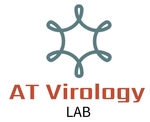Abstract
BACKGROUND: Taiwan experienced a major dengue outbreak in 2023 following the relaxation of COVID-19 border controls. The contributing factors remained unclear. This study investigated potential virological, immunological, and clinical drivers.
METHODS: We retrospectively analyzed laboratory-confirmed dengue virus (DENV) infections at a tertiary care hospital in southern Taiwan. Serotypes were identified by qRT-PCR. Viral origins were assessed through phylogenetic and envelope (E) gene amino acid analyses. Clinical features of DENV-1 and DENV-2 cases were compared. Neutralization and antibody-dependent enhancement (ADE) were evaluated using PRNT and ADE assays.
RESULTS: DENV-1 and DENV-2 were identified as the predominant circulating serotypes. Clinical analysis revealed that DENV-2 infection was significantly associated with older age, diabetes mellitus, hypertension, and elevated hematocrit levels (p < 0.05), and these associations remained statistically significant in multivariate analysis. Phylogenetic analysis showed that DENV-1 isolates belonged to genotypes I and IV, while DENV-2 strains were of the cosmopolitan genotype. These viruses clustered closely with strains from Southeast Asia. Amino acid analysis indicated that DENV-1 strains exhibited 2-10 substitutions relative to 2014 isolates, while DENV-2 strains closely matched those from 2015. Sera from the 2014-2015 outbreaks demonstrated potent homotypic but limited heterotypic neutralization. ADE was observed in heterotypic infection contexts.
CONCLUSIONS: The 2023 dengue outbreak in Taiwan was driven by co-circulation of DENV-1 and DENV-2, limited heterotypic immunity, and ADE. These findings highlight the importance of integrated virological surveillance, genotype monitoring, and immunological assessment to inform dengue control strategies in non-endemic regions experiencing imported viral threats.
